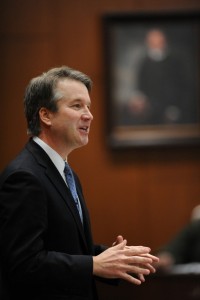Mercenary Justice?
Earlier this week, the United States Department of Justice released a scathing report on police and court practices in Ferguson, Missouri. Figuring prominently in the DOJ’s criticisms, Ferguson criminal-justice officials were said to be overly concerned with extracting money from defendants. For instance, the DOJ charges:
Ferguson has allowed its focus on revenue generation to fundamentally compromise the role of Ferguson’s municipal court. The municipal court does not act as a neutral arbiter of the law or a check on unlawful police conduct. Instead, the court primarily uses its judicial authority as the means to compel the payment of fines and fees that advance the City’s financial interests. This has led to court practices that violate the Fourteenth Amendment’s due process and equal protection requirements. The court’s practices also impose unnecessary harm, overwhelmingly on African-American individuals, and run counter to public safety. (3)
I don’t know how fair these particular criticisms are, but they echo numerous other criticisms made in recent years about the increasing tendency of the American criminal-justice system to rely financially on a burgeoning array of surcharges, fees, forfeitures, and the like.
Professors Wayne Logan and Ron Wright have a fine recent article on this subject, appropriately entitled “Mercenary Criminal Justice” (2014 Ill. L. Rev. 1175).

